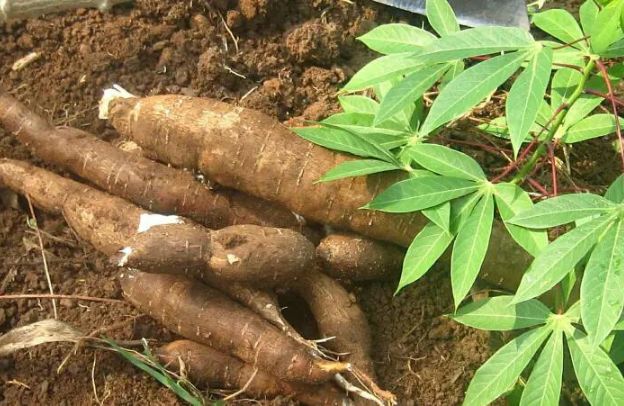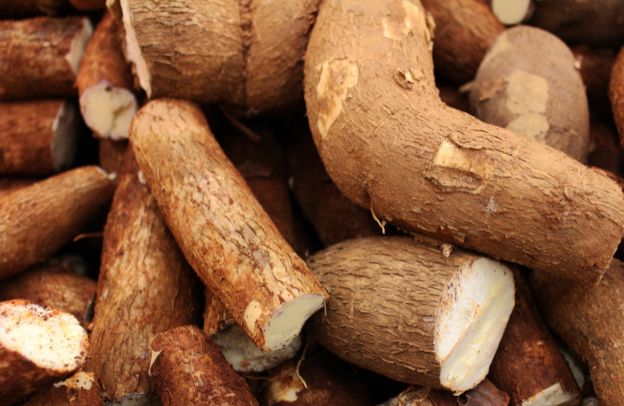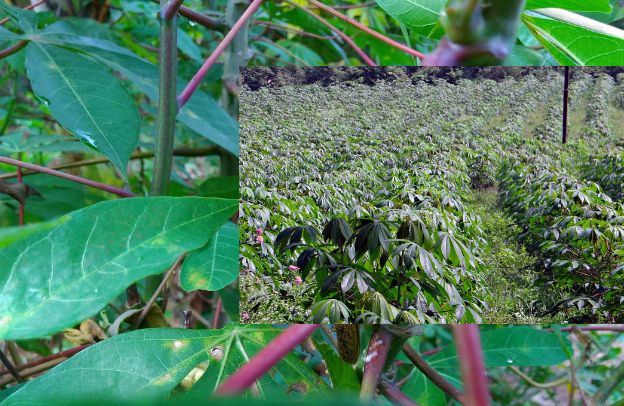Companion Planting for Pest Control in Cassava Farming in Nigeria

Companion planting is a traditional farming practice that involves growing two or more plant species together for mutual benefit. In cassava farming, companion planting is becoming increasingly popular in Nigeria as a natural and effective way to control pests without relying on harmful chemicals.
Small-scale farmers in Nigeria are using this method to reduce their production costs while increasing their yields. However, with the increasing competition in the agriculture industry, farmers need to learn how to rank higher on Google searches to increase their visibility and reach potential customers.
In this article, we will discuss the concept of companion planting for pest control in cassava farming, the importance of ranking higher on Google search, and provide tips for small-scale farmers in Nigeria to improve their online presence and increase their chances of success.
Understanding Companion Planting for Pest Control
Companion planting involves growing two or more plant species together for mutual benefit. In cassava farming, companion planting is an effective pest control method that has been used for centuries.
This practice works by planting certain crops alongside cassava to repel pests or attract beneficial insects that prey on pests. Companion planting has several benefits in pest control, such as reducing the need for harmful pesticides and promoting natural pest control methods.
In Nigeria, several plant species are suitable for companion planting with cassava. These include marigolds, basil, mint, and lemongrass. Marigold, for example, is a popular companion plant that repels nematodes, a common pest in cassava farming.
Basil, on the other hand, repels insects such as mosquitoes and flies, which can transmit diseases to humans and cassava plants. Mint and lemongrass are also effective in repelling pests, such as ants and termites, that can damage cassava crops.
However, it is important to select the right companion plants for effective pest control. Farmers should consider the specific pests they are trying to control and choose companion plants that are known to repel or attract them.
For instance, planting marigolds alone may not be effective in controlling pests if the pests are not susceptible to marigolds’ repellent properties. Additionally, farmers should avoid planting companion plants that compete with cassava for resources such as water and nutrients.
In conclusion, companion planting is an effective and natural way to control pests in cassava farming in Nigeria. By selecting the right companion plants, farmers can reduce their dependence on harmful pesticides and promote natural pest control methods.
Tips for effective Pest Control in Cassava Farming in Nigeria
Here are 7 tips for effective pest control in cassava farming in Nigeria:
- Use companion planting: Companion planting involves planting certain plants alongside cassava to help control pests. For example, basil can repel pests such as whiteflies, while marigolds can repel nematodes.
- Practice crop rotation: Crop rotation involves planting different crops in a specific sequence to reduce the buildup of pests and diseases in the soil. This can help control pests and improve soil health.
- Use organic pesticides: Organic pesticides, such as neem oil and garlic extract, can help control pests without harming beneficial insects or the environment.
- Monitor crops regularly: Regular monitoring of crops can help identify pest problems early and prevent them from becoming more severe. Farmers can inspect their crops by visually examining the leaves, stems, and roots for signs of damage.
- Use pheromone traps: Pheromone traps can be used to monitor pest populations and reduce their numbers. These traps use pheromones to attract pests, such as moths and beetles, and trap them before they can damage crops.
- Practice good sanitation: Good sanitation involves keeping the farm clean and free of debris, weeds, and diseased plants. This can help reduce the likelihood of pests and diseases spreading to healthy plants.
- Seek advice from experts: Small-scale farmers can seek advice from agricultural experts or extension agents for guidance on pest control techniques that are suitable for their specific crop and region.
By implementing these tips, farmers can effectively control pests and reduce crop damage, leading to higher yields and a more sustainable agriculture industry in Nigeria.
Case Studies of Successful Companion Planting for Pest Control in Cassava Farming in Nigeria
Several small-scale farmers in Nigeria have successfully implemented companion planting for pest control in cassava farming. Here are a few case studies:
- Mr. Adekunle is a cassava farmer in Ogun State, Nigeria. He started using companion planting after noticing a decline in his cassava yield due to pests. Mr. Adekunle planted basil alongside his cassava crops and noticed a significant reduction in pest damage. He also observed that the basil attracted beneficial insects, such as ladybugs and lacewings, that helped control pest populations. As a result, Mr. Adekunle’s cassava yield increased by 30% in the first year of implementing companion planting.
- Mrs. Ajayi is another small-scale cassava farmer in Oyo State, Nigeria. She used companion planting with marigolds to control nematodes, which were causing significant damage to her cassava crops. Mrs. Ajayi planted marigolds in between her cassava rows and observed a 50% reduction in nematode damage. Additionally, the marigolds attracted bees and butterflies, which helped pollinate her cassava plants and increase yields.
These case studies demonstrate that companion planting can be an effective pest control method in cassava farming in Nigeria. Farmers can use different companion plants and techniques to control different pests and achieve significant improvements in yield.
Farmers need to document and share their success stories with others, as this can inspire and motivate more farmers to adopt companion planting for pest control. Through sharing experiences, farmers can also learn from each other and improve their techniques to achieve better results.
Conclusion on Companion Planting for Pest Control in Cassava Farming in Nigeria
In conclusion, companion planting for pest control is an effective and sustainable method for small-scale farmers in Nigeria to protect their cassava crops from pests and increase yields. By selecting the right companion plants and implementing proper techniques, farmers can achieve significant improvements in their cassava farming practices.
Additionally, ranking higher on Google search is essential for small-scale farmers in Nigeria who want to increase their online visibility and attract more customers to their business.
By optimizing their content for search engines, farmers can improve their chances of appearing at the top of search engine results and gaining a competitive edge in the agriculture industry.
We encourage small-scale farmers in Nigeria to adopt companion planting for pest control in their cassava farming practices and to use the tips provided in this article to improve their online visibility and reach.
By sharing success stories and learning from each other, farmers can continue to improve their techniques and achieve better results in their farming practices. Together, we can create a more sustainable and thriving agriculture industry in Nigeria.





